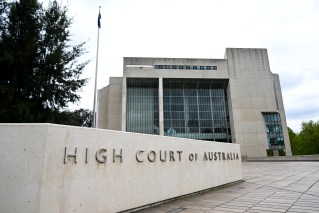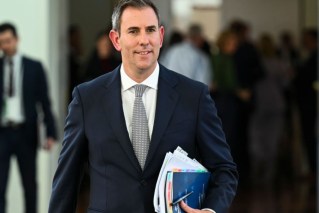Abbott warming to penalty rate changes
Penalty rates are discouraging businesses from putting on more workers and a better “balance” is needed, Prime Minister Tony Abbott says.
His comments came as the Productivity Commission began an inquiry into workplace laws, with penalty rates, the minimum wage and unfair dismissal among the issues being reviewed.
Mr Abbott said he would like to change workplace laws, starting with the policies he took to the 2013 election: restoring the construction watchdog and toughening penalties for corruption.
• The case for: penalty rates are vital
• Frances Abbott still just does not get it
But he said he might seek a “broader mandate” at the 2016 election for other changes, naming penalty rates as a target.
Mr Abbott said many businesses such as hotels and bottle shops no longer opened on holidays and at weekends because of the cost of paying penalty rates.
“I’m a high-paid worker and the last thing I want to do is begrudge comparatively low-paid workers their money, but in the end there’s a balance that’s got to be struck here and my preference will always be in favour of more jobs,” he told Macquarie radio on Friday.
Opposition Leader Bill Shorten said the inquiry was a “new front in the war against fairness”, lumping the potential changes into the same political basket as the government’s unpopular Medicare overhaul, pension cuts and university fee hikes.
“We can’t cut our wages to a brighter future in Australia,” Mr Shorten said.
Amid voter and coalition MP concern about the prime minister’s leadership, Mr Shorten said it was “Tony Abbott’s last roll of the dice”.
“The one thing which unites the Abbott Liberal-National government is an attack on working conditions,” he said.
Mr Abbott said Mr Shorten, a former Australian Workers Union leader, was “living in the past like an industrial dinosaur”.
Productivity Commission chairman Peter Harris said he hoped for a debate based on facts and research.
“I’d like to emphasise that the commission is open-minded, and our approach will be evidence-based and impartial,” he said.
ACTU president Ged Kearney said the inquiry was another attack on rights at work.
“There is no doubt the Abbott government initiated the inquiry as a tool to pursue its obsession with workplace relations and issues like penalty rates and individual contracts,” she said.
The ACTU wants the government to delay four workplace bills until the inquiry, and other reviews, are concluded.
Council of Small Business chief Peter Strong told AAP it was up to the government to ensure any changes, such as varying penalty rates or overhauling unfair dismissal laws, were practical.
“We have to talk about penalty rates and unfair dismissal, but if the extremists in the Liberal party match up against the extremists in the Labor party, then it’s all over,” Mr Strong said.
Australian Retailers Association chief Russell Zimmerman said wage inflexibility was killing the sector’s ability to compete in the global market.
Australian Industry Group spokesman Stephen Smith said: “Workplace relations reform shouldn’t be a dirty word.”
– AAP








